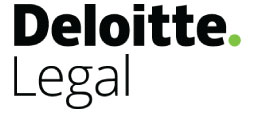The fiscal aspects of the hydrocarbon sector in Albania will be soon governed by a new law. The new draft “On the Fiscal Regime for Petroleum Operations” law (the “New Draft Law”) was initially published in the Electronic Register of Public Announcement and Consultations on April 4, 2019 and has been circulated for comment among stakeholders, chambers of commerce, and experts’ associations in Albania.
The new law governing the fiscal regime in the petroleum operations sector was drafted following a long-standing demand by the Albanian petroleum sector, driven by the fact that, despite many amendments, the existing legislation is outdated. Indeed, the current law – law No. 7811, “On the approval of the Decree no.782, dated February 22, 1994 ‘On the fiscal system in the petroleum sector exploration and production,’” as amended – dates back to April 12, 1994.
Through this new piece of legislation, the lawmaker aims to create a legal instrument to prevail over the provisions of petroleum agreements and to safeguard the interests of the Albanian Government vis-a-vis the private operators of the sector – and at the same time to assure the collection of a higher amount of taxes.
While drafting the New Draft Law the lawmaker has taken a very conservative approach toward the operators in the petroleum sector, and the unsophisticated legislative technique increases the ambiguity and insecurity for the actual operators and potential future investors.
The New Draft Law raises several issues, two of which require the immediate attention of the lawmaker: (i) the prevailing effects of existing petroleum agreements in the sector; and (ii) the extension of those effects on current subcontractors operating in the petroleum sector.
Notwithstanding the intention of the lawmaker to have a prevailing law, due to the impossibility of overruling effective petroleum agreements, the New Draft Law provides that petroleum agreements effective prior to the enacting of the new law will prevail over its provisions.
However, the New Draft Law emphasizes that any new amendment to current petroleum agreements must be done in accordance with the new law’s provisions. The aim of this provision is to eliminate the possibility of petroleum operators obtaining any advantage/benefit in their petroleum agreements by deviating from the general rules provided in the New Draft Law.
This approach towards future amendments of petroleum agreements once again reflects the intention of the lawmaker to induce entities conducting petroleum activity based on current petroleum agreements to comply with the provisions of the New Draft Law.
The second implication requiring immediate attention is the obligation introduced in the New Draft Law that: “in order to prevent the avoidance of the fiscal regime, this Law may be extended to apply to persons conducting petroleum operations on behalf of other persons (referred to as ‘subcontractors’).”
This provision brings major uncertainty, as it is unclear if this extension would only apply in cases of abuse with the tax legislation or could be interpreted by the tax authorities as applying to all subcontractors. In the second scenario, subcontractors will be liable for a profit tax rate of 50%, which would have a significant economic impact on the petroleum operations market.
As mentioned previously, from a legislative technique perspective the New Draft Law provides overcomplicated provisions, unclear definitions, and completely new terminology for the sector, compared to the terminology used previously in petroleum agreements and the petroleum sector.
If the New Draft Law is approved or implemented as it is, it will negatively affect the market, and it will lead to debate, lack of transparency, and compliance-related issues. Therefore, a through revision of the New Draft Law, based on the comments of the experts and groups of interest, would be very beneficiary to the sector.
By Sabina Lalaj, Head of Practice in Albania and Kosovo, and Erlind Kodhelaj, Senior Managing Associate, Deloitte Legal
This Article was originally published in Issue 6.6 of the CEE Legal Matters Magazine. If you would like to receive a hard copy of the magazine, you can subscribe here.


